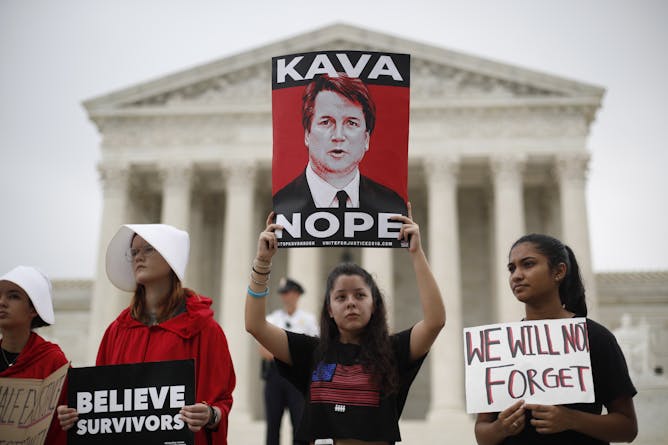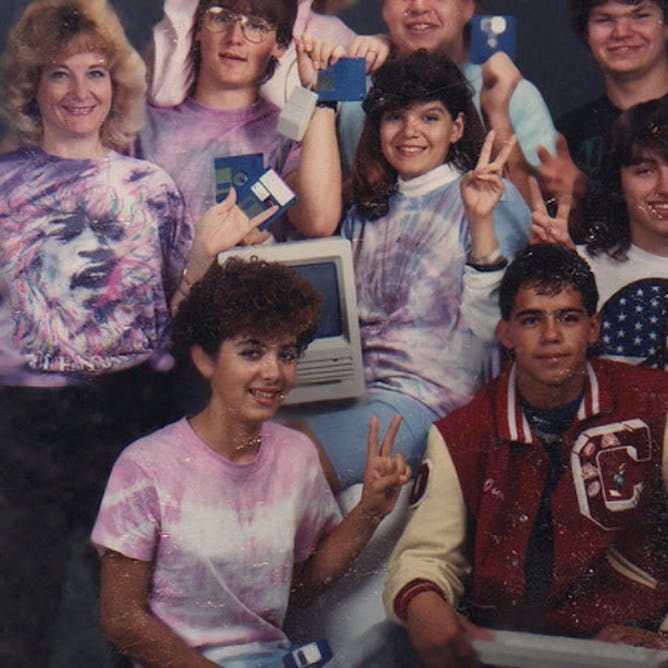|
Will you drive to work today? Most Canadians will. Today in The Conversation Canada, David Gordon of Queen’s University reports on research that shows despite the perception more people are moving into the downtown cores of cities like Vancouver and Toronto, the real population growth is happening in the auto-dependent suburbs.
We’ve got two articles that look at different fallouts from the contentious Senate Supreme Court confirmation hearings: Michael Kehler of the University of Calgary looks at how the myth of masculinity was on display as Brett Kavanaugh’s college years were examined; Shauna Van Praagh of McGill University says the hearings were a lesson for young people about adolescent behviour and responsibility.
And finally… Rowan Thomson of Carleton University provides a unique perspective as a female physicist who was inspired by Donna Strickland’s Nobel prize. She tells us what changes are needed to promote more gender diversity in science.
Regards,
|

Traffic crosses over the Lions Gate Bridge from North Vancouver into Vancouver, B.C., in July 2015. Canada is increasingly becoming a suburban nation, with more people living in car-dependent suburbs.THE CANADIAN PRESS/Darryl Dyck.
THE CANADIAN PRESS/Darryl Dyck
David L.A. Gordon, Queen's University, Ontario
It's easy to over-estimate crowding and traffic in highly visible downtown cores and underestimate the vast growth happening in the suburban edges of our metropolitan regions.
|

Activists protest in front of the Supreme Court in Washington, Tuesday, Oct. 9, 2018. A Supreme Court with a new conservative majority takes the bench as Brett Kavanaugh, narrowly confirmed after a bitter Senate battle, joins his new colleagues to hear his first arguments as a justice.
(AP Photo/Pablo Martinez Monsivais)
Michael Kehler, University of Calgary
A masculinities scholar weighs-in on the the reverberations of the recent Supreme Court hearings and what he calls a disturbing message of "boys will be boys." Men need to stop validating this lesson.
|

Teens are questioning the suggestion that they can’t get their stories straight and that abusive behaviour is to be expected at their age. Here teens from the 1980s pose for a time capsule.
Vintage Everyday
Shauna Van Praagh, McGill University
Last week's hearing with Brett Kavanaugh raised questions about how responsible we are for our youthful actions. A legal scholar says that youthful inexperience doesn’t let us off the hook.
|

Women are still typically the minority on academic hiring committees in science, and “majority rules.”
(Shutterstock)
Rowan Thomson, Carleton University
The award of a Nobel Prize in physics to Donna Strickland this week is an opportunity to build support for women in science, says one female physics professor.
|
Business + Economy
|
-
Andrew J. Hoffman, University of Michigan; Ellen Hughes-Cromwick, University of Michigan
William Nordhaus showed that the market offers the best chance for preventing global catastrophe form climate change.
|
|
Education
|
-
Margaret Kristin Merga, Curtin University
Girls are encouraged more often to read, despite performing better in reading assessments nationally and internationally. Here's how parents and educators can help connect boys with books.
|
|
Environment + Energy
|
-
Mark New, University of Cape Town
For hot, dry and water-stressed countries like Botswana and Namibia, high temperatures and droughts will be more severe than the global average.
|
|